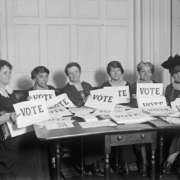NCL testimony before ACIP on crucial vaccines
February 24, 2022
Media contact: National Consumers League – Carol McKay, carolm@nclnet.org, (412) 945-3242 or Katie Brown, katie@nclnet.org, (202) 207-2832
Washington, DC—Today, February 24, 2022, NCL submitted comments to the Center for Disease Control and Prevention’s Advisory Committee on Immunization Practices in support of new recommendations for the influenza, pneumococcal, and tick-borne encephalitis vaccines. NCL comments appear below.
February 24, 2022
Grace M. Lee, MD, MPH, Chair
Advisory Committee on Immunization Practices
Centers for Disease Control and Prevention
1600 Clifton Road, N.E., Mailstop A27
Atlanta, GA 30329-4027
RE: Docket No. CDC-2022-0015
Dear Chairwoman:
Founded in 1899 by the renowned social reformer Florence Kelley, the National Consumers League (NCL) has long championed vaccines as lifesaving medical interventions. General Secretary Kelley’s support of vaccinations played a key part in mitigating a critical smallpox outbreak towards the end of the 19th century, and her stalwart advocacy for immunizations has informed NCL’s bedrock principles for increased access and vaccine confidence. 122 years later, we are honored to persist in our fight to protect consumers from vaccine preventable illnesses and we extend our gratitude to the Advisory Committee on Immunization Practices (ACIP) for the opportunity to present public comment.
Tick-borne Encephalitis (TBE) Vaccine
During the pandemic, Americans are spending more time in nature and participating in outdoor activities. The majority of TBE virus infections are acquired in forested areas through activities such as camping, hiking, fishing, and bicycling; and case numbers peak when ticks are most active, during early and late summer. In addition, incidence rates and severity of disease are highest in people aged ≥50 years.
NCL applauds the FDA for its approval of Pfizer’s TBE vaccine last year as an important step in making a vaccine more accessible for TBE, and preventing illness from tick bites. It is critical that access to this vaccine is expanded so that individuals and families feel safe and protected from TBE when outdoors. Being that there is no specific treatment for TBE, the preventive measure of vaccination is a significant means for keeping Americans healthy.
Pneumococcal Vaccine
While we are encouraged that ACIP recommendations increase access to the pneumococcal vaccine for adults ages 19-64 with underlying health conditions, we were disappointed that ACIP did not lower the overall age recommendation to include adults aged 50 and older. Moreover, there is a lot of confusion about which vaccine or combination of vaccines is needed for complete immunization. Confusion about the pneumococcal vaccine can cause vaccine hesitancy among patients, and makes it difficult for providers to make informed decisions for their patients. We would like the CDC to provide clearer recommendations to help increase the rate of vaccine uptake; including physician and patient education. NCL will continue to encourage consumers to ask their healthcare provider about being fully protected against pneumococcal disease.
Influenza Vaccine
Protecting older adults from influenza is now critically important as COVID-19 continues to plague the nation. We are pleased that ACIP is considering recommendations for preferential use of enhanced seasonal influenza vaccines (e.g., high-dose, adjuvant, and recombinant) over standard vaccines in adults aged 65 and older. Updating decades old recommendations will prevent hundreds of thousands of outpatient/ER visits, hospitalizations, and deaths due to influenza each winter. During the 2018-2019 flu season, an estimated 35.5 million people got sick with influenza and 34,200 people died.
Because of the pandemic, more Americans have come to understand how vaccines work and value the protection that they offer to prevent infectious disease. However, millions of people have missed their routine shots during the shutdown. It is important that we seize this moment to educate consumers about their recommended immunizations across lifespan. NCL will continue working to ensure equitable access to vaccines and instill vaccine confidence in consumers. We look forward to clear recommendations by ACIP on the use of vaccines. We appreciate your consideration of our views on this important public health topic.
Sincerely,
Jeanette Contreras, MPP
NCL Director of Health Policy
National Consumers League
###
About the National Consumers League (NCL)
The National Consumers League, founded in 1899, is America’s pioneer consumer organization. Our mission is to protect and promote social and economic justice for consumers and workers in the United States and abroad. For more information, visit www.nclnet.org.


 By Nancy Glick, Director of Food and Nutrition Policy
By Nancy Glick, Director of Food and Nutrition Policy
 By NCL Health Policy Associate Milena Berhane
By NCL Health Policy Associate Milena Berhane













